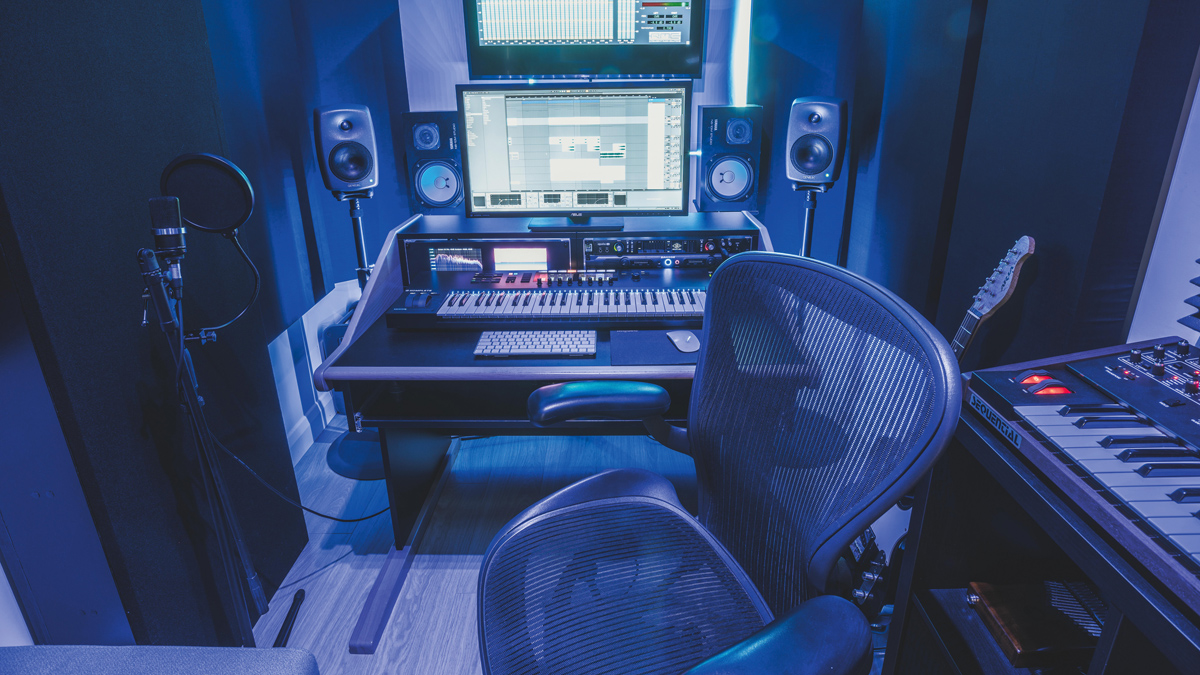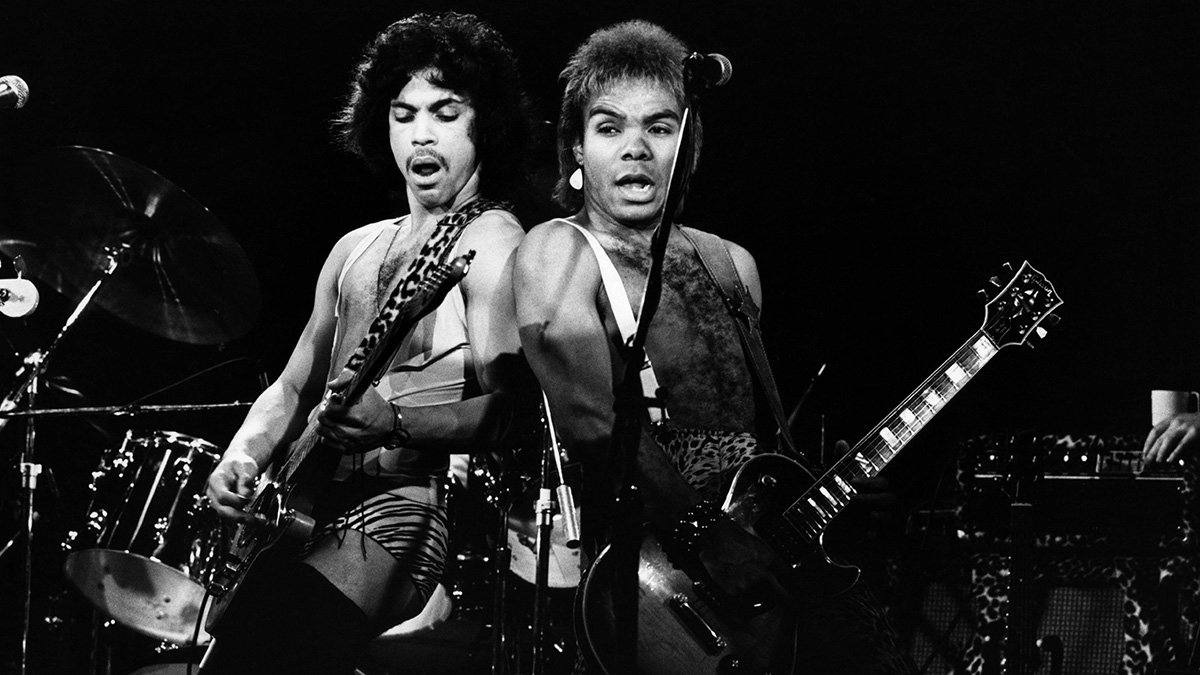How to work from home when you’re a professional musician: producers and composers reveal their lockdown workarounds
Here’s how to make a bad situation a bit better

The last few months have had their unfair share of ups and downs; It’s been a rollercoaster ride, with the creative industries being flung off the rails. Yet, from chaos emerges order, and with it, new ways of working.
We sat down with several leading composers, producers, and sound designers, working across advertising, film and game soundtracks and software instrument development. The aim? To learn about the main challenges of the last few months as well as the best solutions; from remote recording sessions and team logistics, to sourcing clients and optimising home studios.
The good news is there’s positivity, some smart hacks and practical advice in abundance.
Remote recording sessions
David Johnston and Tom Gilbert are no strangers to complex recording sessions. As co-founders of Echoic Audio, an award-winning music and sound design agency, they’ve worked on projects for top-tier clients like Nike, Dyson, ITV and Jaguar, as well as collaborating with independent animators, filmmakers, and artists on a huge variety of projects.
Both agree that their largest challenge when making music for adverts has been using session musicians and singers through lockdown. David says: “Having an artist record at our studio is a lot easier than directing remotely. We’ve had a few instances where the performance hasn’t been quite right, and we’ve had a few rounds of re-records. If we’d been directing in the same room it would have been a lot smoother.”
Their solution? Google Hangouts.
“We started using Google Hangouts to direct session recordings live. It’s an easy alternative to simply giving rounds of feedback over email,” David says. Although it may seem intimidating at first, there are others who go further in their enthusiasm for the possibilities video communication software provides.
Get the MusicRadar Newsletter
Want all the hottest music and gear news, reviews, deals, features and more, direct to your inbox? Sign up here.
We started using Google Hangouts to direct session recordings live. It’s an easy alternative to simply giving rounds of feedback over email.
Drew Morgan, a composer, arranger, producer and instrumentalist with impressive credits ranging from game soundtrack Halo 4 to producing Perfume Genius, says: “I love live recording sessions. There is a magic to getting musicians in a studio that is hard to recreate, but sometimes we just need 30 seconds of something and booking a studio for something that short wouldn’t be practical even under normal circumstances. As more and more people improve at recording remotely, it will become easier to get more real players on projects where the samples just don’t cut it.”
Without the pressures of expensive studio time, the freedom to experiment has obvious advantages. “It’s been great finding out who else records remotely on instruments I don’t play,” Drew says. “There are a lot of people taking the time to experiment with collaborative projects on the purely creative front, so I’ve had the chance to work with some new artists.”
Tom of Echoic, who also produces under the pseudonym ‘Gilbert’, shares this enthusiasm for the flexibility of video calling,
“It’s proved that it’s possible to continue working as a team remotely to a high standard, collaborating with animation studios and directors from all over the world without being in the same studio. I think we’ve met a lot of clients face-to-face, albeit virtually, that maybe we wouldn't have before lockdown.”
Time to experiment
We also spoke to Simon Ashdown, veteran of the film score scene. He’s worked on diverse titles like Arrival, Annihilation and Into The Spider-Verse, and has many more projects in the works. So, naturally, he’s had to rearrange recording sessions recently.
His co-owned music software company, Slate + Ash, were working on a new software instrument for release in June, due to feature large ensemble recordings. Instead, he dug through his computer, found unfinished projects, and approached them with a fresh mindset.
“We decided to explore a different instrument we’d had kicking around for a while in a basic format,” Simon says. “This has now developed into a fully blown sample synth with some really exciting features and workflow possibilities and we’re picking up sessions for the previous instrument in August.”
So, although the new guidelines were a spanner in the proverbial, with a bit of experimentation he’s got two new instruments in development instead of one - further proof that unanticipated constraints result in new opportunities.
He adds: “Getting more comfortable with video calling, along with the extra time people have on their hands has led to connecting with some amazing people. This has evolved into working with some incredible artists on expansion packs for our granular/loop collage synth ‘Cycles’ and a super exciting collaborative instrument with a composer/producer in New York, which has remote sessions happening in NYC as we speak.”
Home studios
Another obvious challenge of working from home is the room in which you have your setup. Most of us don’t have the freedom to splash out on acoustic diffusers, install hefty mixing desks, or construct ersatz vocal booths, especially when the room often doubles up as a bedroom or shared living space. According to Tom, this isn’t a bad thing… it’s liberating:
“I have a much smaller studio now which I’m currently using in the bedroom at home. I really enjoy the limitations it presents. It’s a small space so it's just one mono synth, a poly synth and a drum machine running through my mac with my favourite software. It allows me to get to know those bits of kit inside out. Sometimes at the main studio there can be too many options - it can be overwhelming.”
I’ve spent less time jamming endlessly on kit and more time finishing stuff.
As for productivity, these limitations have also had a positive effect for Tom. “I’ve spent less time jamming endlessly on kit and more time finishing stuff. I actually spent the first half of lockdown going through old hard drives filled with projects and turning some of those ideas into tracks. It's amazing what you can find on old hard drives.”
But he adds a note of caution: “Technically, the biggest challenge is monitoring. It’s even more important now to play mixes on lots of systems and get the rest of the team to lend their ears for final mixes.”
So, even if it’s comparing in-ear headphones and cheap desktop speakers with your standard near-field monitors, never underestimate the power of different output devices to highlight mix issues.
Drew has some other useful tips for home studio creators. He juggles teaching at BIMM (now online) alongside his film and game scoring, so it’s paramount he switches his mindset quickly. His solution?
“Lighting and timetabling! Natural light and bright overhead lights while doing admin and teaching, and then warmer, darker lighting for the creative headspace. Also, being very clear about planning so my brain doesn’t get overly distracted by the things that need to get done on all the simultaneous projects.”
Project Management
Aside from the creative possibilities that extra time and flexibility afford, there’s the issue of managing projects efficiently across different teams and timezones. Echoic Audio are a team of five, where each of them has a different role to play in projects. They were used to sharing the same studio complex, making communication simple before the regulations changed.
“Logistically speaking we have a morning Google Hangouts call where we chat about the work that’s going ahead that day”, David says. “We have an online job board to keep people informed about what’s coming up and deadlines. We also now use Slack to organise our communications. There’s a channel for each project - we keep it up to date with progress and feedback. It's been brilliant for keeping consistency across a range of projects.”
Open your mind
Despite the ongoing challenges of the new world, there’s always a solution; sometimes it’s a quick fix, other times it’s a revolutionary process or tool. The running thread? Be flexible, be open minded, and embrace new communication technology.
And for those younger musicians hit hard during this weird time, Drew’s got some final advice: hone your skills.
“You may be a great drummer or a genius at making interesting Kontakt instruments. These are the things that will make you helpful on a project or to another composer. The most important thing is to make as much great music as you can in as many different ways you can. But always music you love and that has integrity. If one of those projects goes well, you’ll be happy to keep working in that vein. The projects that don’t take off will still give you a lot of joy, present you with problems that require new techniques and ideas to solve, and remind you why you got into this in the first place.”
Tom’s final piece of advice is equally poignant: “Don’t get too caught up with having all the latest technology (although it is fun). A load of great kit without passion or drive to succeed won’t get you too far.”
David adds: “Believe in your talent. Always educate and develop your skills. Meet as many people in your field as you can. Be tenacious and never give up.”
And Simon’s final word: “Don’t forget your musical authenticity!”
Featured in this article
David Johnston and Tom Gilbert - Co-founders of Echoic Audio, an award-winning music and sound design studio working across commercials, film and motion art. Clients include Nike, Dyson, ITV, Mercedes and Jaguar.
Simon Ashdown - Co-owner of musical sound design and software company Slate + Ash. Freelance film credits include Arrival, Annihilation, Into The Spider-Verse and Hanna.
Drew Morgan - Composer, Arranger, Producer, Instrumentalist. His work includes videogame soundtrack Halo 4 with Neil Davidge, producing Perfume Genius’ second album, experimental improv band Modulus III and a cornucopia of other random noise-making opportunities.


"There’s plenty for us guitarists to learn – and ‘less is more’ is the overriding lesson": how to play like George Harrison on The Beatles' Abbey Road
“How daring to have a long intro before he’s even singing. It’s like psychedelic Mozart”: With The Rose Of Laura Nyro, Elton John and Brandi Carlile are paying tribute to both a 'forgotten' songwriter and the lost art of the long song intro









